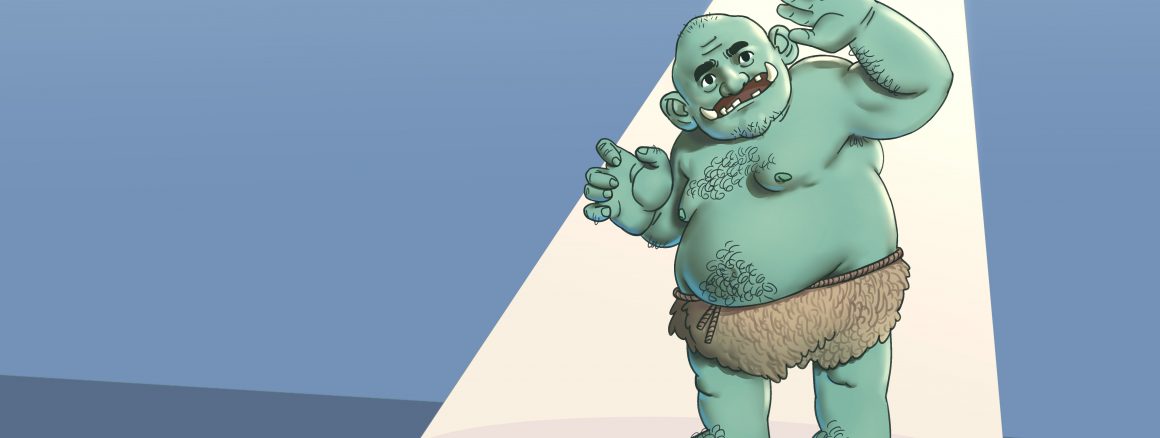BALKAN TROLL OF THE MONTH: Ivan Ivanovic, a TV Host from Serbia
March 31, 2021
The Balkan Troll of the Month is an individual, a group of individuals or a media outlet that spreads hate on the internet based on gender, ethnicity, religion, or other diversity categories. The Balkan Troll is selected based on hate speech incidents identified across the Western Balkans region.
Our March Troll is Ivan Ivanovic, a TV host from Serbia. Ivan Ivanovic hosts the show ‘Evening with Ivan Ivanovic’ which is one of the most popular TV shows in the country. In episode 593, RDN monitors detected nationalist and sexist narratives towards Montenegrins. The episode was aired on 26 February 2021 on the TV stations Nova S, Nova BH and afterwards published on the TV show’s own Youtube channel. At the time of the writing the episode has a little less than 100,000 views on YouTube only.
In his show, Ivan Ivanovic called Podgorica a Serbian village. Ivanovic joked by saying “Serbian villages have a future. For example, Podgorica.” In the second part of his joke he attempted to explain his joke due to a word play in the Serbian language and he said that he meant the football team Buducnost (translated: future) from Podgorica. Ivanovic ended his joke only by saying “I am kidding. Greetings to our brothers in Podgorica“.
Ivanovic’s statement is offensive for Montenegro and its citizens as it denies the identity of people of Montenegro, their state and nation, by calling them Serbian and furthermore naming their capital “a village”.
Later during the show, Ivanovic made a joke about women from the Montenegrin town, Ulcinj. He referred to a Danish girl named Eldina who grows her mustache and eyebrows so that men would stop constantly flirting with her. Having said that, he added, “Apparently, she’s never been to Ulcinj”. This commentary is an obvious sexist remark, directed towards Montenegrin women.
This is not the first time Ivanovic has made problematic statements that were not welcomed by part of his audience. In 2014, one of the jokes he made was about underage rape victims in Bosnia and Herzegovina. Although he issued an apology in the next episode, this remains a proof that humor in the media requires a lot of thinking and professional and ethical approach. Despite his explanation that he, by no means, had bad intentions, many of his jokes, aired on TV with national coverage, and framed as ‘harmless’ humor, have been bordering with sexism and other types of stereotypes as well as usage of terminology that cannot be considered politically correct.
Humour as a dangerous zone where hateful narratives are widely spread
While humour is welcomed on television talk shows as a powerful tool, the above-mentioned examples are neither humourous nor part of a stand-up comedy performance. Such narratives can be considered offensive, and Ivan Ivanovic gave them a platform and visibility through his very popular TV show. This type of humor does not transform or deconstruct some of the omnipresent divisive narratives in the Balkans, instead, it further perpetuates conflicts in the Balkans and brings those narratives closer to younger generations and those who should be detached from divisions.
Many bloggers and media figures successfully use humor and satire as part of tackling some of the global problems that the world is facing. However, there is one important question: is the price of making someone laugh worth using humor that is targeting ‘the other’? By other we mean either a group in the society (such as jokes about ‘Cige’ as Ivanovic calls Roma people in some of his jokes) or in the Western Balkan neighborhood (like Montenegro in this case).
Rise of nationalist narratives in Montenegro and Serbia
RDN monitors have detected several incidents related to nationalist narratives in the media in both countries. Many of these examples from both Serbian and Montenegrin media are denying the existence of Montenegro as a state and nation. These narratives are spread by politicians and influential figures as well as media.
“Nationalism in both countries is equally important. They influence and strengthen each other. This is a result of the politics by the political parties that works in their own interests. When they cannot offer sustainable policies and sustainable solutions, they (political parties) still play on the identity card, which is highly problematic”- says Jovana Marovic from Politikon Network. Marovic and Nikola Burazer from European Western Balkans elaborate more on the nationalist discourses in Serbian and Montenegrin society in the video interview made by RDN 2.0 members Media Diversity Institute Western Balkans and Center for Investigative Journalism- Montenegro. The video is available in local languages.
If you want to learn more about how media should report on ethnicity, read more in the “Getting the Facts Right: Reporting Ethnicity and Religion“ case study. The case study and other useful resources are available on RDN website resources page.
